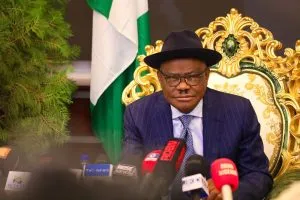Four PDP Senators Defect to APC, Further Weakening Opposition in Nigerian Senate

Abuja, Nigeria – July 23, 2025 – In a significant blow to the opposition Peoples Democratic Party (PDP), four of its senators formally defected to the ruling All Progressives Congress (APC) during a plenary session of the Nigerian Senate on Wednesday. The defections, announced on the Senate floor, underscore the ongoing political realignments in Nigeria as the APC consolidates its dominance ahead of the 2027 general elections.
The defecting senators are Senator Ekong Sampson (Akwa Ibom South), Senator Aniekan Bassey (Akwa Ibom North East), Senator Francis Fadahunsi (Osun East), and Senator Olubiyi Fadeyi (Osun Central). Their defection letters, read by Senate President Godswill Akpabio, cited internal crises, leadership disputes, and disunity within the PDP as primary reasons for their departure. The senators also expressed alignment with the APC’s “renewed hope” agenda under President Bola Ahmed Tinubu, which they described as a unifying and progressive vision for Nigeria’s development.
The defection ceremony was marked by a celebratory atmosphere among APC members, with prominent party leaders, including APC National Secretary Senator Ajibola Basiru and former Minister of Labour and Employment Dr. Chris Ngige, in attendance to welcome the new members. Senate President Akpabio, himself a former PDP governor who defected to the APC in 2018, praised the senators for their decision, emphasizing that the APC remains the “party to beat” in Nigerian politics.
Impact on Senate Composition
The defections have significantly altered the balance of power in the Nigerian Senate, which comprises 109 seats. According to various reports, the APC now controls between 70 and 72 seats, while the PDP’s representation has dwindled to between 28 and 30 seats. Other parties in the Senate include the Labour Party (5 seats), Social Democratic Party (2 seats), New Nigeria Peoples Party (1 seat), and All Progressives Grand Alliance (1 seat). Two seats remain vacant.
This shift further weakens the PDP’s influence in the National Assembly, where it has struggled to maintain cohesion amid internal factionalism and leadership tussles. The APC’s growing dominance in the Senate strengthens its legislative control and enhances its political leverage as Nigeria approaches the next election cycle.
Political Context and Reactions
The defections come at a time when the PDP is grappling with significant challenges, including a prolonged leadership crisis and factional disputes. The party has been unable to present a unified front since its loss in the 2023 presidential election, with internal wrangling over leadership positions and zoning arrangements further eroding its base. The senators’ letters highlighted these issues, with Senator Sampson specifically noting the “irreconcilable differences” within the PDP as a key factor in his decision to join the APC.
APC leaders have capitalized on the defections to project strength and unity. Senator Basiru, in a statement to the press, described the move as a testament to the APC’s growing appeal and President Tinubu’s leadership. “The APC is the party of progress, and these defections show that our renewed hope agenda is resonating with Nigerians,” he said. Dr. Ngige echoed similar sentiments, urging other opposition lawmakers to consider joining the APC to contribute to national development.
However, the defections have sparked criticism from some quarters. Political analysts and PDP supporters argue that the frequent cross-carpeting of elected officials undermines democratic principles and voter trust. “These defections reflect a lack of ideological commitment in Nigerian politics,” said Dr. Aisha Mohammed, a political science lecturer at the University of Abuja. “Voters elect candidates based on party platforms, and such switches can erode public confidence in the democratic process.”
Broader Implications
The defection of the four senators is part of a broader trend of political realignments in Nigeria, where lawmakers and governors frequently switch parties to align with the ruling party or position themselves for future elections. The APC has benefited significantly from such defections since coming to power in 2015, with notable figures like Akpabio and several state governors moving from the PDP and other parties.
For the PDP, the loss of these senators further complicates its efforts to rebuild and challenge the APC in 2027. The party’s national leadership has yet to issue an official statement on the defections, but sources within the PDP indicate that efforts are underway to address internal divisions and prevent further losses.
Looking Ahead
As Nigeria’s political landscape continues to evolve, the APC’s strengthened position in the Senate could have far-reaching implications for legislative priorities and electoral strategies. The ruling party is likely to leverage its numerical advantage to push through key bills and policies aligned with President Tinubu’s agenda, including economic reforms and infrastructure development.
For the PDP, the defections serve as a wake-up call to address its internal challenges and present a compelling alternative to the APC. With the 2027 elections on the horizon, the opposition will need to unify its ranks and articulate a clear vision to regain lost ground.
In the meantime, the four defecting senators have pledged their commitment to the APC’s goals, with Senator Fadahunsi stating, “We are here to contribute to the progress of Nigeria under the APC’s leadership. This is a new chapter for us and for our constituents.” As the dust settles on this latest political shift, all eyes will be on the Senate and the broader political arena as Nigeria navigates its complex democratic journey.






